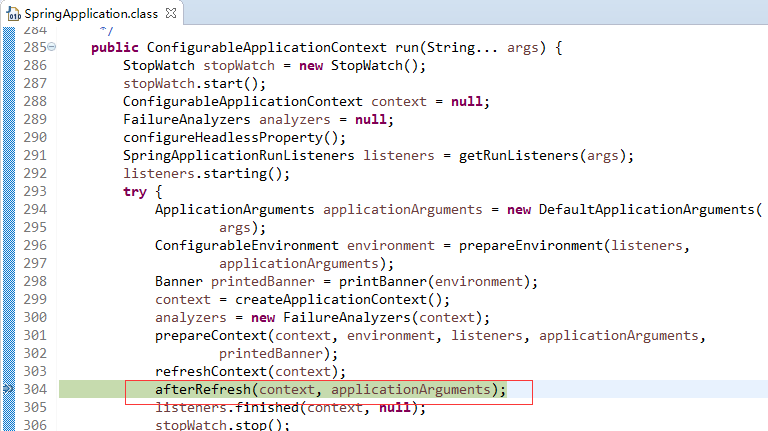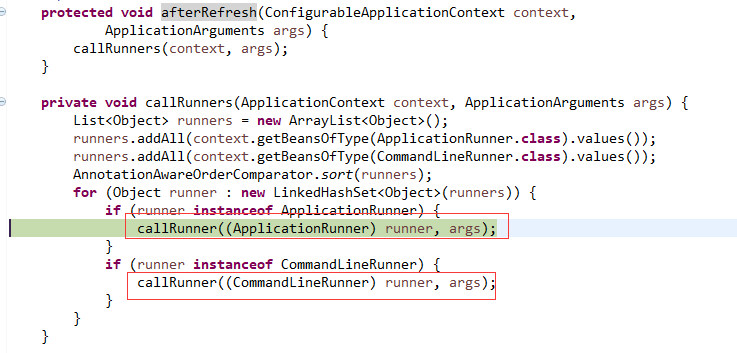Spring Boot 初始化运行特定方法解析
人气:0Spring Boot提供了两种 “开机自启动” 的方式,ApplicationRunner和CommandLineRunner
这两种方式的目的是为了满足,在容器启动时like执行某些方法。我们可以通过实现ApplicationRunner或者CommandLineRunner来实现,他们都是在SpringAppliaction执行之后开始执行的。这个特性可以让我们自定义一些在容器启动时需要初始化的逻辑
ApplicationRunner接口:
官方doc:
Interface used to indicate that a bean should run when it is contained within a SpringApplication. Multiple ApplicationRunner beans can be defined within the same application context and can be ordered using the Ordered
当该接口包含在SpringApplication中时执行。多个ApplicationRunner通过Order直接进行排序:
/**
* 初始化类
*/
@Order(1) // @Order注解可以改变执行顺序,越小越先执行
@Component
public class MyApplicationRunner1 implements ApplicationRunner {
/**
* 会在服务启动完成后立即执行
*/
@Override
public void run(ApplicationArguments arg0) throws Exception {
System.out.println("MyApplicationRunner1----" + arg0);
}
}
/**
* 初始化类
*/
@Order(2)
@Component
public class MyApplicationRunner2 implements ApplicationRunner {
/**
* 会在服务启动完成后立即执行
*/
@Override
public void run(ApplicationArguments arg0) throws Exception {
System.out.println("MyApplicationRunner2----" + arg0);
}
}
容器启动后的运行结果:

可以看到多个ApplicationRunner执行顺序是按照Order中的值执行的,并且每个的入参都是同一个ApplicationArguments实例(具体原因后面分析)
CommandLineRunner接口:
二者的官方doc基本一样,区别在于接收的参数不一样
/**
* 初始化类
*/
@Order(1) // @Order注解可以改变执行顺序,越小越先执行
@Component
public class MyCommandLineRunner1 implements CommandLineRunner {
/**
* 会在服务启动完成后立即执行
*/
@Override
public void run(String... args) throws Exception {
System.out.println("MyCommandLineRunner1----" + args);
}
}
/**
* 初始化类
*/
@Order(2)
@Component
public class MyCommandLineRunner2 implements CommandLineRunner {
/**
* 会在服务启动完成后立即执行
*/
@Override
public void run(String... args) throws Exception {
System.out.println("MyCommandLineRunner2----" + args);
}
}
容器启动后的运行结果:

可以看到多个CommandLineRunner的执行效果跟ApplicationRunner一模一样
最后看下源码:
SpringApplication启动时,会执行其run方法中的afterRefresh方法:

在afterRefresh中可以看到这两个接口被执行,并且每个ApplicationRunner或CommandLineRunner实例都是用的同一个入参:

您可能感兴趣的文章:
加载全部内容